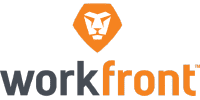Taking absolutely nothing away from its fruitful and ongoing contributions, the field of data science is itself being transformed. Like so much else in our digitally driven world, yesterday’s cool new thing becomes, in a matter of just two or three revolutions of Moore’s law, commonly expected.
In the case of data science, two forces are combining to accelerate its access—rapid advances in AI technologies and the establishment of open source data science projects. The irony here is that AI, being one of the pillars of data science, is now one of the enablers to its growing adoption and democratization within organizations. As private machine- and deep-learning algorithms are now widely available on leading open source project sites such as Apache and GitHub, and with the assistance of intelligent training bots, they’ve been made much easier for business analysts to use. It won’t be long before tuning a machine-learning algorithm is as common as running pivot tables in Excel.
These trends are good news for all businesses. Along with advances in AI solutions and the availability of open source tools and services, there’s been a sharp rise in the number of so called “citizen data scientists.” These are the individuals within an organization who do not have a formal background in math or computer science; nevertheless, they are comfortable swimming in data, leveraging growing bodies of AI solutions and consumable applications and are capable of delivering insights and making informed decisions.
What makes citizen data scientists so valuable is their connection to and familiarity with the inner workings of the organization. Data scientists are in short supply. When brought onboard, they’re typically sequestered into back-office labs with a small team of specialized analysts preparing data and looking for patterns; in short, they’re not that deeply connected to the business. On the other hand, citizen data scientists have a line-of-business role; they are business analysts or members of the business intelligence or IT teams. With a blend of data and business savvy, and a holistic perspective of the business, they are uniquely equipped to deliver better outcomes, share and operationalize findings and advance and support cross-department analytics initiatives.
The single biggest asset of virtually every digitally driven business is its data. For that reason, the value of learning algorithms, data models and data analytics can hardly be overstated. Delivering insights and enabling data-driven decisions to improve margins or to achieve the highest level of customer satisfaction are the outcomes we expect from the successful execution of data strategies. With more and more sophisticated data science solutions, tools and platforms available through open source projects, and the emergence of citizen data scientists exerting their influence in understanding and driving analytic initiatives, the path to the successful execution of data strategies has never been clearer.















